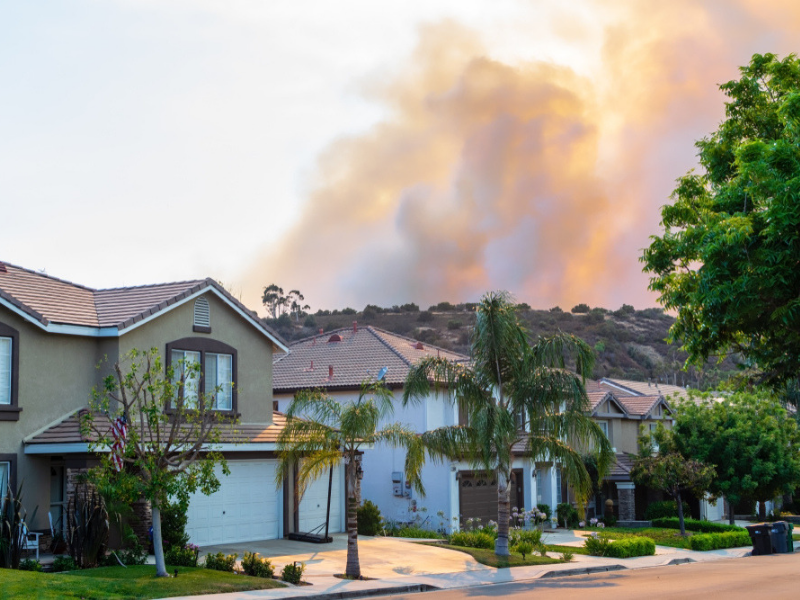10 Tips to Minimize Stress When Selling Your Home

When I was growing up, my family must have moved a dozen times. After the first few moves, we had it down to a science: timed out, scheduled, down to the last box. Despite our best efforts, plans would change, move-out and move-in days would shift, and the experience would stress the entire family out. Despite the stress, we always managed to settle in our new home and sell our old one before the start of school.
With a lot of planning and scheduling, you can minimize the stress of selling your house and moving. Here are some tips:
Plan Ahead
Know when you want to be moved out and into your new home and have a backup plan in case it falls through. Before you sell your home, familiarize yourself with local and state laws about selling a home so you’re not caught by surprise if you forget something important.
Lists and schedules are going to be your new best friend through the process. Have a timetable for when you want to sell your house when you have appraisers, realtors, movers, etc. over. Also, keep one for when your things need to be packed and when you need to be moved into the new place. I suggest keeping it on an Excel sheet so you can easily update it as the timeline changes (and it will – stuff happens).
Use Resources
First time selling a house? Check out some great resources on what you need to know. US News has excellent, step-by-step guides on what you need to know to sell. Appraisers and realtors can also be good resources, and since you’ll be working with them through the process, be sure to ask them questions or have them point you to resources.
Appraisal
Have your house appraised before you sell so you know your budget for your new home. This will help you look for an affordable home that meets your family’s needs. It will also help you maximize the amount you can receive for your old home. You can also learn useful information from an appraisal, such as which repairs need to be made, if any.
Repairs
Does your house need repairs before you move? If so, figure out whether you’ll be covering them, or whether your buyers will (this will be a part of price negotiations, so factor it in with your home budget). Will you need to make repairs in your new house, or will that be covered? Either way, make sure you know which repairs need to be made – and either be upfront with buyers about them or make them before you sell.
Prepare to Move
If you’re moving to a new town or a new state, you need to prepare more than just a new home. Research doctors and dentists, places to eat, and what to do for fun. If you have school-aged children, look at the local school district or private school options – not only to learn how to enroll your kids, but also to get a feel for the school culture, see what extracurricular activities your kids can do, what standards/learning methods your kids’ new school will implement, etc.
Packing
Think: how soon are you moving, what will you need to use before you move, what can get boxed and what needs to stay out? The sooner you’re moving out, the sooner you need to pack, but if you have time, just take a day per weekend to organize a room, pack what you want to take and arrange to donate what you want to get rid of.
Downsizing
Moves are a great time to purge old, unwanted and unused stuff from your home. Sometimes, it’s necessary if you’re moving into a smaller space. Either way, as you pack each room, think about whether you use what you’re packing to take with you. If you do, pack it to go. If not, put it in a separate box to go to your local donations place. You can also call some organizations to have your unwanted things picked up, no hassle.
If You Have Kids
Moving with kids can be extra stressful. Be sure to include them in the process. This is a wonderful opportunity to teach younger children about moving and prepare them for the changes it brings. Older children can help out with responsibilities, like packing their room or researching their new town.
Your New Place
Moving into a new place takes some planning as well. Once you’ve bought your new home or condo, design at least a basic outline for where your stuff will be set up. Make necessary repairs and decorate (painting, for example) before you unpack. Ideally, you should have some time to do these things before, but if you don’t, don’t be in a hurry to unpack everything – it can be a hassle to paint if you have all your furniture and bookshelves up!
Staying In Touch and Making New Friends
Finally, moving can mean good-byes with family and/or friends. Social media is a great way to keep in touch with people after you’ve moved, but distance can still weaken these old relationships. Make some time to call or message your old friends to keep in touch. Pair that work with a concerted effort to meet new people. See what hobbies or groups are in your new area and start there. It doesn’t seem like a lot, but it can make your new house a home and make your new town a community you can enjoy.
1 Million +

We have our pulse on the high-end luxury market.
The activity in price ranges over $1,000,000 is an effective indicator of the health of the overall market.
If buyers for luxury properties are active, it tells us that “smart money” is confident about real estate in Northern Colorado.
So far this year, 107 luxury properties have sold in Larimer and Weld Counties. Last year at this time 93 had sold and in 2017 it was only 56.
It seems “smart money” is confident.
If you want to see even more insights about the Colorado market so that you can make really good decisions about your real estate, you are welcome to watch this complimentary webinar, just click HERE.
5 Deal Breakers That Can Blindside Home Buyers

Purchasing a home can be a complex endeavor for even the most well-prepared home buyer. You’ve diligently saved for your down payment, followed the market, researched agents and now you are ready to make an offer on your dream home. Don’t let these 5 “Deal Breakers” come between you and your new home.
- Big Purchases on Credit. It is tempting to buy the furniture for your new home or a new car for the garage before the sale closes. Take care if you are making these purchases on credit. Large purchases on credit can have a major impact on your credit profile which effects your mortgage application. It’s a better plan to wait until after closing or pay cash for these transactions or you may be putting that furniture in a different living room than you originally picked them out for.
- Overpaying. Before your bank will approve your mortgage they will appraise the home you are purchasing. If they feel you are overpaying they are likely to decline your mortgage application. If you find yourself in this situation consult with your agent on renegotiating your offer to be more in line with the bank’s appraised value.
- Purchasing too close to Foreclosure. If you are making an offer on a house which is facing foreclosure be sure to have a closing date set before the foreclosure date. Have your agent work with the lender to structure closing before the house goes back to the bank and into foreclosure.
- IRS liens. You’ve heard the old saying “Death and Taxes”. Back taxes and liens can derail your attempts to get financing for a mortgage so be sure to have your books in order before filing your loan application.
- Comprehensive Loss Underwriting Exchange (CLUE). CLUE is a database of insurance claims for both people and property. Your home insurance rates are determined by the information about you and the property you plan to purchase which is contained in this report. Past claims for water damage, falling trees and even dog bites from present and past owners can multiply your insurance rates. Consult your agent about the CLUE report for your future home as soon as possible once your home purchase offer is accepted.
When purchasing a home there will be challenges which you can plan for and the unexpected hurdles. By educating yourself as a consumer and choosing a well trained real estate agent you can avoid many of the pitfalls of 21st century home ownership.
What about you? Tell me if you have had any “deal breaker” experiences.
Reduced

Some fascinating research from the Denver Metro Association of Realtors…
37% of properties that sold last month along the Front Range had a price reduction at some point during the listing period.
Property owners who have to reduce their price take an average of 58 days to receive an offer.
Those who don’t have to reduce their price only take 13 days.
This stat obviously speaks to the importance of pricing your property right on day one.
What We Notice

Here are some observations we have about the market right now:
- Inventory is up, price reductions are up, the length of time to sell a home is up
- Seller concessions are more prevalent
- Sellers are more willing to accept contingent offers (especially in higher price ranges)
- If a home doesn’t sell within a week, it often becomes stigmatized by the market and potential buyers assume there must be something wrong with it
- Homes that likely would have sold within hours a year ago, are now sitting on the market
- Condition is super-important as buyers become even more picky
- Pricing a property correctly on day one is paramount
- Sellers who over-price their property are finding themselves chasing the market
Fort Collins Posted in Blog, Fun Facts Tagged blog, Friday Fun Facts, homes, inventory, market, potential buyers, Price Range, up, Windermere Real Estate
A Closing Window

For home sellers who would like to move to a new home this year, there is a window of time that is closing as we head into the Fall months.
Most people know that the Spring and Summer are the most active months for real estate and that activity trails off into the Fall and Winter.
Here are the specific numbers behind this…
The number of homes sold along the Front Range in November tends to be between 15% and 29% lower than September.
That means the best window of time for current sellers to obtain a contract from a buyer and close by the end of the year will occur over the next 45 days.
For sellers who have homes on the market today, it is time to ensure that:
- The home is priced right versus the competition
- All of the marketing elements are in place
- It is easy for a buyer to make an offer on the home
1 Million +

We have our pulse on the high-end luxury market.
The activity in price ranges over $1,000,000 is an effective indicator of the health of the overall market.
If buyers for luxury properties are active, it tells us that “smart money” is confident about real estate in Northern Colorado.
So far this year, 107 luxury properties have sold in Larimer and Weld Counties. Last year at this time 93 had sold and in 2017 it was only 56.
It seems “smart money” is confident.
If you want to see even more insights about the Colorado market so that you can make really good decisions about your real estate, you are welcome to watch this complimentary webinar, just click HERE.
Prepare For and Prevent Damage This Wildfire Season Before It Happens


After last year’s wildfires, some of the largest and deadliest in recent memory, spread along the west coast, homeowners are on edge as to what this fire season will bring. The questions of whether their home will be burnt, or if they will be affected by poor air quality, hang in the air much like the smoke of a nearby fire. Accompanied by heatwaves hitting much of the U.S. these fears can turn into realities just as quick as a spark in brush. Luckily there are ways to prevent damage and to prepare for anything coming your way.
Be prepared with fire insurance
Are you currently protected in case of a fire? Make sure to talk with your insurance agent and work on a plan to insure your home.
Questions to ask them are:
- What is covered should our home be destroyed in a fire?
- What kinds of documentation do we need to do in order to get the full benefit of the insurance?
- It’s usually a great idea to keep a log of what is in your home and how much it costs. Keep receipts and invoices if possible.
- Who at the company should we contact in case of emergency?
Be prepared with an emergency kit
Cal Fire has a comprehensive guide to all things wildfire preparedness. Here they suggest putting together an emergency kit that’s always ready in case of sudden evacuations. They recommend including:
- Map marked with at least two evacuation routes
- Non-perishable foods to last three days
- Prescriptions and medications. Also, eyeglasses or contact lenses.
- Change of clothes
- Toiletries and sanitation supplies
- And extra set of car keys, as well as credit cards, cash or traveler’s checks
- First aid kit
- Flashlight and batteries
- Copies of important documents like birth certificates and passports
- Food and water for your pet
- Chargers for cell phones and other devices
Some other items you might consider having close by are easily carried valuables, sentimental items like family photos, and computers or hard drives. Keep a sturdy pair of shoes and a flashlight near your bed for any evacuations at night.
Prevent damage by fortifying the building
Fire-Safe Landscaping
You don’t have to re-do the entire garden to slow the fire down. Home Advisor recommends you create a balance of aesthetically pleasing flora and slow-burning plants that are less likely to ignite.
Additionally, keep your garden and property free of dry materials that are ideal for kindling either in your bonfire or for a wildfire. Not only does creating this barrier protect your home, it also gives firefighters a safe area to work from as they work to control the fire.
To see what plants to use and other ways to fireproof your property, visit HomeAdvisor.
Build or remodel with flame-resistant materials
Materials like brick, stucco, metal, or concrete are great exteriors that can prevent the fire from taking hold of your home, at least initially. If your home is already built with one of these materials, the weak points might lie in your extremities like your deck or porch. Consider re-building these with fire-proof materials or add a coating to protect them.
Additionally, protect the most vulnerable areas of your home, like your windows and any air vents. Add retractable fireproof panels to your windows or replace the glass with wire glass or fire-proof safety glass. Don’t forget your skylights or windows on your doors.
 Facebook
Facebook
 X
X
 Pinterest
Pinterest
 Copy Link
Copy Link








